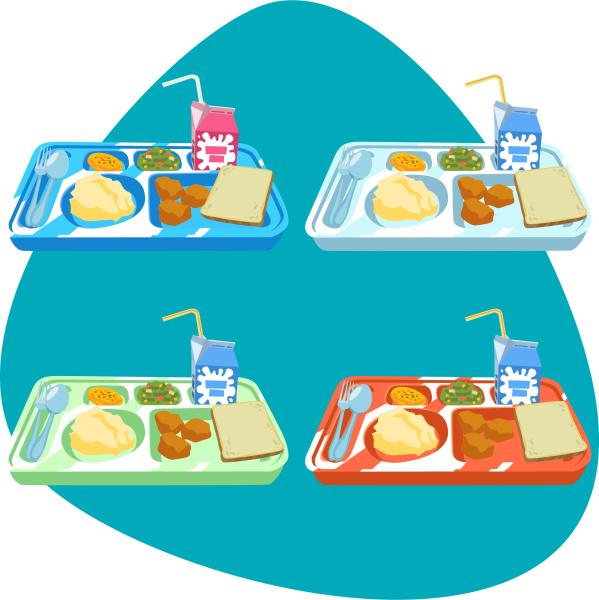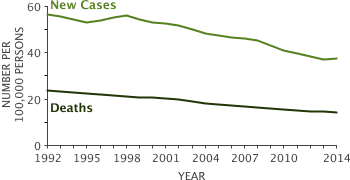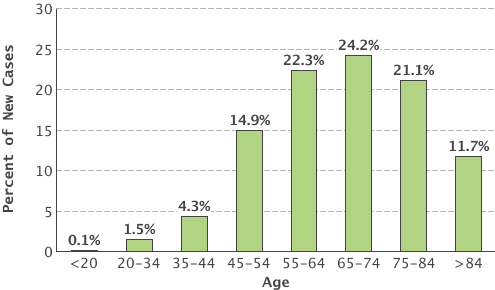
When did school lunches become so contentious that law suits are filed over the processes used in their ingredients? True - they have never had fresh sushi or hand-crafted ravioli, but at a cost of about $2.50, what can we expect?
Children are eating in the middle of their school day, which is important to sustain learning - despite what Mick Mulvaney, Director of the Office of Management and Budget (OMB) says. Most importantly, for some children, that tray contains the only healthy, nutritious meal that is ever routinely put in front of them.
However, some groups disagree that regular school lunches are healthy at all. For example, the NY-PTA recently passed a resolution that requests only foods that use the organic process be served in school. In California, a lawsuit was filed to stop the inclusion of "processed" meats in school lunches. Are there really schools that exist that have so few problems that ham sandwiches are their biggest concern?
It seems so because the group The Physicians Committee for Responsible Medicine (PCRM) filed a lawsuit earlier this month to "stop schools in California's Los Angeles Unified School District and Poway Unified School District from serving students processed meats—including hot dogs, pepperoni, and luncheon meat—which are linked to colorectal cancer."
Ok - let's start with the claim first. On their website, PCRM cite the October 2015 report from the International Agency for Research on Cancer (IARC) that placed processed meats in their most risky category - "carcinogenic to humans."
Without getting too deep into the flaws that go into IARC's classification system, the paper where the data were presented shows a very weak link between these meats and cancer. The link is so weak that even California, a state that labels everything that causes cancer (and a lot of things that don't) under the guidelines of Proposition 65 (the Safe Drinking Water and Toxic Enforcement Act enacted in 1986) refuses to label processed meat.
Alcoholic beverages are found in the same IARC category. So, if you see any of the members of PCRM with a glass of wine in their hands, feel free to call them a hypocrite. Mustard gas is in the same category. And plutonium. Do they think hot dogs are as dangerous to kids as mustard gas?
That is part of the problem with IARC's simplistic classification system. It doesn't factor in exposure. In its early days, IARC existed to identify compounds for further study, but for states like California, showing up on an IARC list now is reason for a warning label, even if it might take 10,000 hot dogs, instead of one, to be harmful. A sensible classification system can't use five orders of magnitude, but IARC does.
On the website, the PCRM director of nutrition education Susan Levin, M.S., R.D., ignores the low risk and states that "Colorectal cancer is now skyrocketing among young people," and that "California should ban processed meats now to take steps to bring down rates in Generation Z and beyond."
Skyrocketing? A small uptick in cases was recently published and subsequently over-inflated by the media, but the actual increase only amounted to an added 1 or 2 cases per 100,000 people under age 50. When talking about colon cancer, 'young people' are under 50 - not in elementary school. That is no reason to halt the ham sandwiches. Not only are the overall number of cases of colon cancer decreasing (shown below on the left) but data from 2010-2014 (shown below on the right - cases by age) state that people under 20 account for 0.1% of all new cases - roughly 13 cases. And, the small uptick is thought to be attributed to the general increase in obesity.
It isn't about science, it is about an agenda. PCRM is a Washington, D.C. based non-profit advocacy organization for vegetarian and vegan diets. So, their issue is not really with processed meat - it is with all meat. In this lawsuit, they are making a small step in a much larger agenda to have meat removed from diets completely. And, they are starting with our kids.
However, meat is an important part of a child's balanced diet. Dr. Ruth Kava, Senior Fellow in Nutrition here at the American Council on Science and Health, says that "Meat contains important nutrients, some of which, like vitamin B12 you can’t get from other foods. Others include iron, potassium and other vitamins & minerals."
Even if you are not in love with the idea of your kids eating a hot dog at lunch, PCRM could spend money buying bagged lunches for those days instead of suing California schools, wasting precious resources and time that should be spent educating our children. They want to buy vegetarian health halos but those will harm growing kids on the less fortunate end of the socioeconomic spectrum.
To put this into even better perspective, the School Nutrition Association states, "One in five, or 15 million, children in America live in households without consistent access to adequate food. Every Monday morning, school nutrition professionals witness this hunger on the faces of students eagerly waiting in line for a school breakfast after a long weekend without enough to eat."
So, why don't we focus on the real problem here, which is 20% of our children living in homes that cannot buy enough food to feed them, and stop worrying about a ridiculous vegetarian agenda?





